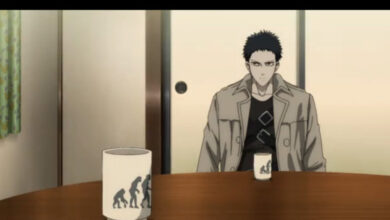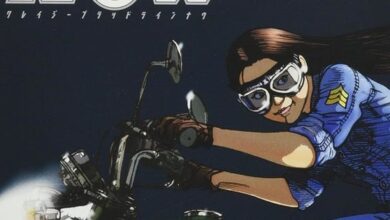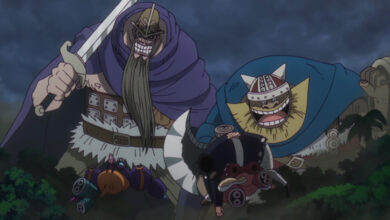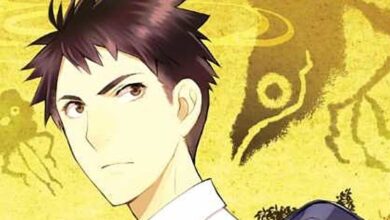Fermat no Ryōri Episodes 1-5 Anime Review – Review
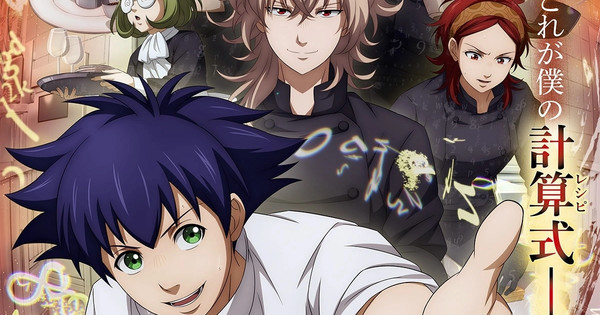
Cooking is something many take for granted. There are many unique combinations and ideas to make a dish. Even if a meal can be prepared by anyone due to the simplicity of anyone, there are many, few details that help enhance the overall dining experience. Cooking can be seen as an art, but it is also a science. Some calculations can be used to make perfect meals, and Fermatt Kitchen This is a show that seems to be taking advantage of this unique perspective.
Gaku is a very talented character in mathematics because he developed a love for it at a young age, but once he entered high school, he lost his creative spark. He is still smart about various indicators, but like many creatives, he seems to have fallen into the ordinary trap. What he lacks is a new creative channel that allows him to properly expand his mathematical interests, and thus, he becomes a new creative world that he never knew of. The setup is very simple. I have something to do with the emotional struggles our main characters have experienced, but in these five episodes, how this journey is performed.
The initial setting focused on Gaku, a talented mathematician who seemed to have fallen out, but the location in the story doesn’t seem to match what others say. The show seems to be Gaku’s perspective in the ruts, as he has no active development of new formulas or unique ways to solve problems. The problem is that the show is still trying to conceive him as a genius, who is far ahead of the league than everyone else and is not clear that he can’t be a mathematician. He failed to complete the Mathematics Olympics, but he was still an incredible high school student. The show’s incitement happened because of his self-doubt and anxiety rather than because of his ability, and it was just because his evil principal wanted to punish him unfairly and clashed in the first place.
It’s a very messy setup because it means that the pressure to compete with other, more dedicated people is Gaku and destroys his belief in himself, but the whole structure of the show is that he is put in the Do-or-Die cooking situation. Kai constantly puts Gaku in situations where he needs to cook or solve problems, otherwise he will fail as chief, and he succeeds because he is good at solving problems, not because he overcomes self-doubt. The show is unclear whether his main problem is whether he really lacks what a mathematician needs, or that he initially just overwhelmed and needs to put more pressure on it. The lack of clarity does make it difficult to resonate with what our protagonist goes through occasionally, because I don’t know his emotional journey.
Lack of clarity can sometimes be translated into the overall premise of the program. It drives this math idea as a key component of understanding cooking, but through answers to many questions, the show also has nothing to do with mathematics itself. Many times, mathematics will improve in standard ways, such as how components are added together to get new components that evoke different flavors. Or it can be as simple as how to use temperature control to lift the plate. However, the show can solve the answers to some questions based on something that is more clearly connected to mathematical connection, or by tying their answers with the clear ones.
Unfortunately, this gradually deviates from the premise of each episode. I do think that the show is the best when the show is very personal. I love Gaku’s relationship with his father and other major actors. Outside the principal, everyone feels so motivated, but the understanding between each other is so. Despite being biased from the premise, I do like it when Gaku takes more personal feelings and incorporates them into his dishes, such as citing a sense of nostalgia or learning how to present dishes in a way that complements other types of cultures, as they work in a restaurant that serves different clients, not just Japanese. Everyone is relaxed, but not in a mean way. There is an idea: “If you can’t handle it, you won’t be a chef.”
I don’t think the show needs to choose a method. When it tends toward those more personal ideas, it just succeeds as a narrative. There is a way to create a formula for yourself that can leverage the foundations of mathematics to enhance those subjective and personal experiences, but has not been found yet. Its mathematical explanation is that it combines ingredients to complement and enhance those richer emotional moments, and its mathematical explanation is not far enough. I hope the show can find the formula in the second half of the season because there is a lot of potential. I want to learn more about specific enzymes. I want to have a deeper understanding of how changing values or adding value to different components can lead to the value of these different results.
I want to try to see the world like our main characters, which is probably one of the more unique visual themes throughout the show. Whenever Gaku approaches the moment he encounters Eureka, he starts to see binary and different recipes spread throughout the place. He is applying mathematics to the way he understands the world around him, which is great. I also like the ongoing metaphor that once a different tool is discovered, different tools can be used to extend the numbers. This is the most creative person in the show when it comes to visual presentation, because unfortunately, it’s a little bland.
I love the look when food is ready, but there is no real emotional musical accompaniment to add to the show’s extra talent. this Background music Feeling stocked, there are no really different themes or emotionally exciting symphonies that reflect the emotions of the characters as they try their dishes. The whole show looks pretty bland when preparing the food. The palette feels very soft, just like someone rubbing Vaseline on the camera, all the designs are very flat and lifeless. When they want to capture specific reactions or do something interesting, the show occasionally switches to a slightly slightly cartoonish style in the way of a character model, but sometimes they have these simplified character designs in the same shot as the actual character design and look very offensive. They don’t fit together at all, and the ultimate harm will outweigh the benefits.
Overall, this premise has a lot of potential, and there are a lot of inner thoughts here. The characters are strong and the way they bounce back against each other is very credible, especially when they try to use cooking as a means to elicit a specific feeling in the person they eat. The problem is that the overall premise of the show starts is very difficult and becomes less and less over time. It feels like Gaku first entered the world of cooking, the show is struggling to find its foothold. It does mean the show has a lot of potential to turn it all around and make things almost satisfying in a meta-way way at the end of the season. I hope it does, because like Gaku, it has all the tools needed and it’s a great show. It just needs to find the best way to take advantage of and bring the biggest tools.
